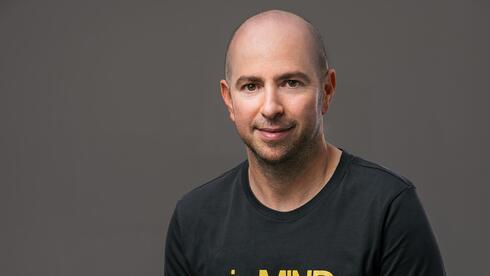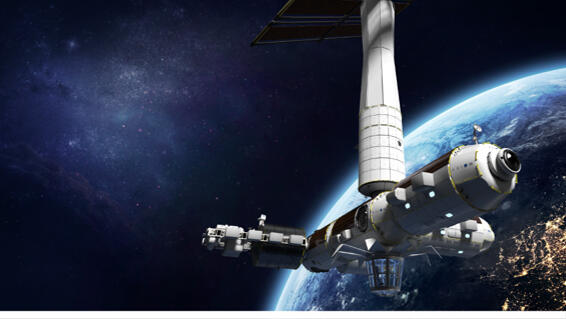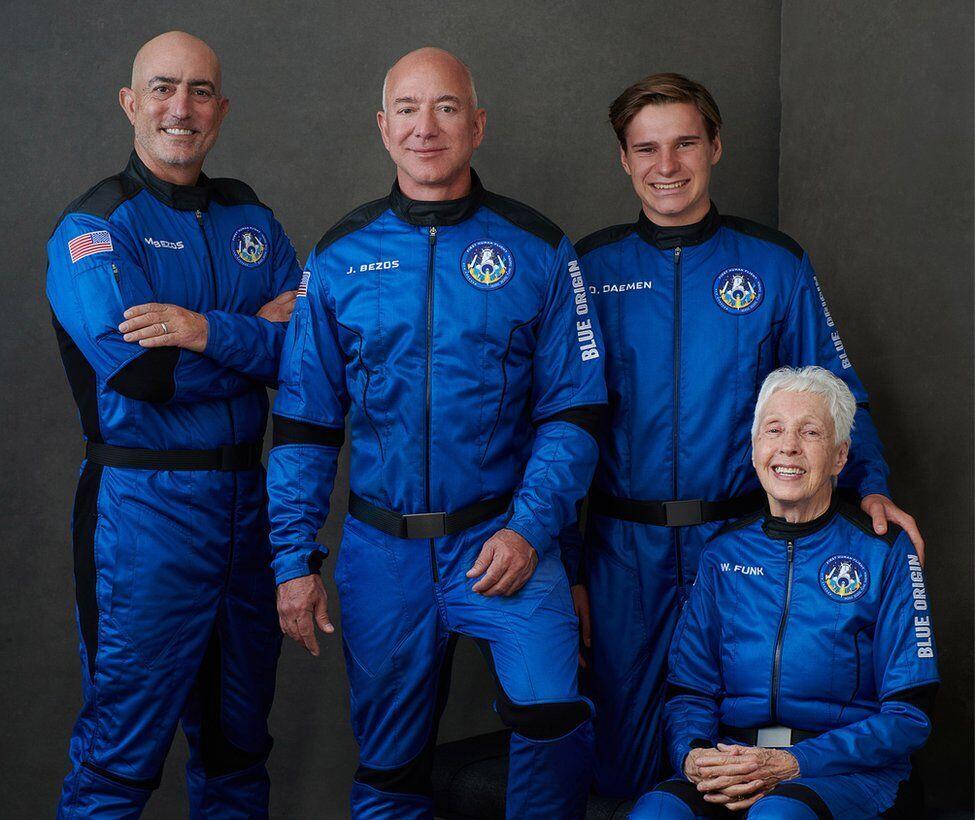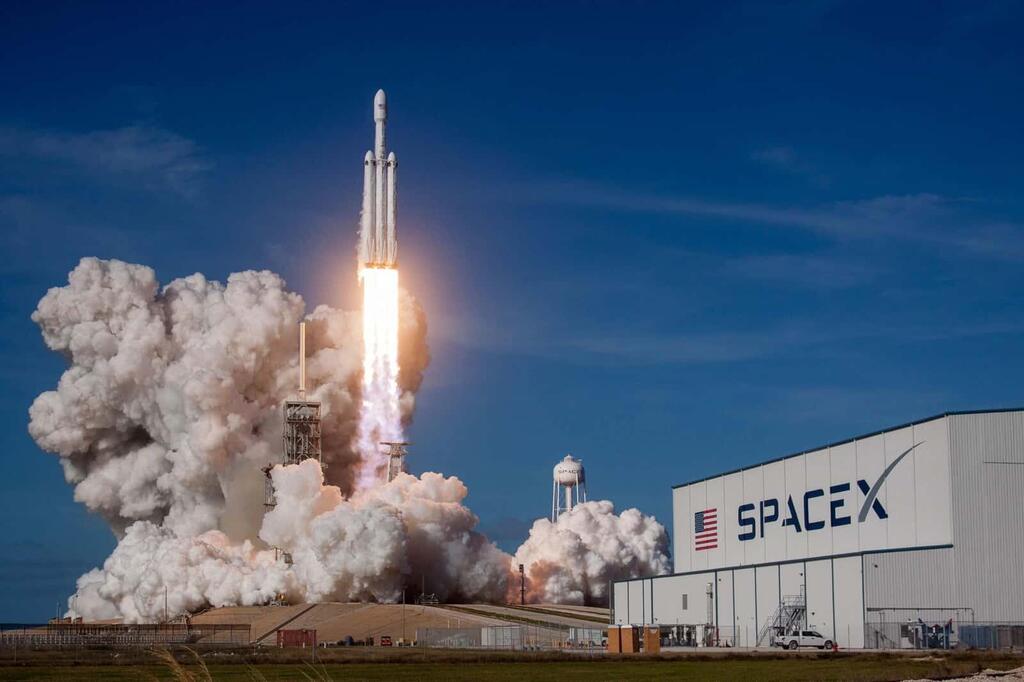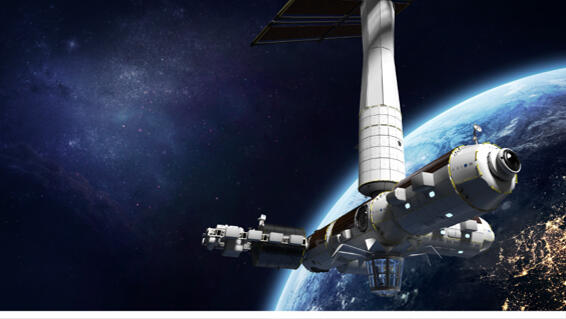
Space tourism is growing, but only for the rich
Commercial flights into space are becoming more routine, and despite the very high prices, it is estimated that the value of the space tourism industry will reach $3 billion by 2030
An American, a Brit, and a South African board a spacecraft. No, this isn’t the opening of a joke, but the third tourist space flight launched by Virgin Galactic last month. This flight follows a successful mission in August and a research mission in June in collaboration with the Italian Air Force.
The space launches conducted by Virgin, involving regular yet often very wealthy citizens, are the result of nearly 20 years of hard work. They were launched more than a decade after the originally planned date set by the founder, British businessman Richard Branson, after facing significant setbacks, including an accident in 2014 in which one of the pilots lost their life, resulting in an almost complete halt to the program.
Virgin Galactic is not the only company with such ambitions. Other prominent companies include Blue Origin and SpaceX, which together have ushered in this era’s space race. However, this time, the competitors are not the United States and the Soviet Union, but billionaires like Jeff Bezos and Elon Musk. According to UBS estimates, the space tourism market is expected to reach a market value of $3 billion by 2030.
A ticket to space costs about half a million dollars
"It was amazing to see Earth from space. It was so comfortable, and it was the best journey of my life," said Ana Mayers of her spaceflight experience. She was one of the passengers on the previous Virgin Galactic flight for tourists.
Related articles:
Mayers, an 18-year-old student at the University of Aberdeen in Scotland, is the youngest person to have been sent to space so far, and also the only to travel with her mother, Keisha Schahaff. The mother and daughter are from Antigua. Despite the high cost of space flights, Mayers won her ticket in a lottery organized by the Make-A-Wish Foundation, which aims to make space tourism more democratic.
In contrast to Mayers, the third passenger on that same flight, former Olympic swimmer John Goodwin, aged 80, who suffers from Parkinson's disease, paid $250,000 for his ticket. He purchased his ticket in 2005, a year after the company's founder, British billionaire Richard Branson, announced his intention to start a space tourism company. His early decision saved him a significant amount of money since, according to the company's website, tickets now cost $450,000, and there is already an 800-person waitlist.
Branson won the first round of the space race. On July 11, 2021, he was sent into space on the Virgin Galactic spacecraft, just nine days before a similar flight by Blue Origin's rocket. "I'm not at all afraid. This is a dream come true," Branson said before the flight. "I'm in my 70s now - it's either you give up or you stay fit and enjoy life." The spacecraft, carrying five other people, reached an altitude of 80 kilometers. The flight lasted 59 minutes from start to finish, with the passengers experiencing a few minutes of weightlessness. "I've dreamed of this moment since I was a child, but nothing can prepare you for the view from space," Branson added after landing. This month marked the company's third commercial flight to space, with three paying passengers alongside two pilots and an astronaut, reaching the edge of space just 45 minutes after launch.
Jeff Bezos, founder of Blue Origin, had a similar experience on his flight to space in 2021, which he called the "best day ever." Bezos' journey into space lasted 10 minutes and 10 seconds aboard the New Shepard rocket developed by Blue Origin, his space company founded in 2000. "I had high expectations, and it was much better than that," he emphasized. Unlike Branson, Bezos volunteered to be on the company's first crewed flight, while Virgin Galactic had conducted spaceflights with astronauts before Branson joined.
In addition to Bezos were his brother, aviation pioneer Wally Funk, and one paying passenger, 18-year-old Oliver Daemen, the youngest person to ever go to space. Daemen, whose father is a wealthy Dutch real estate investor, participated in a ticket lottery and won a place on the second planned flight. However, when the winner of the first seat, Chinese crypto entrepreneur Justin Sun, who had bid $28 million for the ticket, backed out at the last minute, his spot was given to Daemen. The exact amount Daemen paid has not been disclosed, but it is safe to assume it was several million dollars.
Passing the time until lift-off
The third competitor in the race is Elon Musk's SpaceX, but unlike his peers, he has not joined the launches or flown himself. His focus has instead been on promoting the company's communication division. In September 2021, the company's first private flight took place, and included billionaire Jared Isaacman, who earned his fortune from a payment processing company he founded in his youth, and three other passengers at his expense. They spent three days orbiting Earth at an altitude of 160 km.
The company’s second mission attracted even more attention, at least in Israel, due to the participation of Israeli businessman Eytan Stibbe in addition to two other businessmen. The mission took off in April last year, and the passengers are said to have each paid $55 million for a week-long stay at the International Space Station. Since they spent their time in space conducting experiments, they do not consider themselves space tourists.
SpaceX and Virgin Galactic have found ways to engage their enthusiastic fans who are eagerly awaiting their turn. SpaceX, in conjunction with NASA, offers training at the Johnson Space Center in Houston. Similarly, Virgin Galactic offers a preparation program at its spaceport in New Mexico. They are also collaborating with NASA to develop training programs for private astronauts. However, the training required for these space tourists is much less rigorous than that of NASA astronauts. For example, in Virgin Galactic, the training is included in the ticket cost and lasts only a few days, including "fittings for the brand's space suit and boots."
Space travel insurance and hotels orbiting the earth
The rush to space has already created new industries, some of which offer slightly more affordable ways to experience space, such as astronaut starter camps and zero-gravity simulation flights. These industries also include special insurance policies for space travel and even plans to build the first space hotels. The New York Times reported that travel insurance company Battleface launched a space insurance policy for civilians at the end of 2021. The policy covers death and disability in accidents and is available to participants in the launches of all three companies. However, CEO Sasha Gainullin admitted that while the policy has generated significant interest, it has yet to be purchased.
Looking ahead, the Orbital Assembly Corporation has revealed its plans to build the first space hotel. The company has even announced an optimistic forecast for the opening of the first hotel, which will orbit Earth in 2025. This hotel will accommodate up to 28 guests, while the second, larger hotel is planned to open in 2027. Perhaps more realistically, Axiom Space is working on building the first private space station, designed by Philippe Starck.
While the industry is developing and growing in demand, it still remains the realm of the wealthy for the most part. It will likely be several more years before it becomes more accessible. Joshua Bush, CEO of travel agency Avenue Two Travel, which works with major space exploration companies, believes that the market will develop similarly to the aviation industry. "At the beginning of the 20th century, only the wealthiest people could afford to fly," he told The New York Times. "Just as we have budget airlines today, there will be some parallel to them in the space industry. Hopefully, this will happen in my lifetime."






